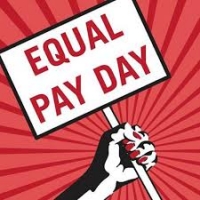
This means that women are effectively working for free from 10th November to the end of the calendar year, because on average they earn less than men. EPD is calculated using the mean full time gender pay gap, which is currently 13.9%. EPD 2016 falls only one day later than EPD 2015 which means the pay gap is closing. But at the current rate of progress it will take over 60 years to close the gender pay gap. With low pay impacting on the lives of millions of women and with mounting evidence of the impact gender inequality has on our economy, campaigners say we simply can't afford to wait that long.
Sam Smethers, Fawcett Society Chief Executive said: “A root cause of the gender pay gap is that we don’t value the work done by women. As we mark EPD this year we are focusing on the fundamental question of who and what we value and asking why it is that we don’t value women and the work they do – paid or unpaid. Equal value goes to the heart of the fight for pay equality, because the reality is that if it is a sector dominated by women the pay will be lower.” Sam also warns of the threat to equal pay caused by Brexit: “As we look ahead to a UK outside the EU and possibly the single market, we have to guard against the risk of going backwards and losing some of the rights that women have fought for over many year'.
The Fawcett Society welcomes the Government’s forthcoming introduction of mandatory gender pay gap reporting, which will mean that companies with over 250 staff will be obliged to publish both their mean and median pay gap. However, to ensure this step genuinely tackles the pay gap there should also be a requirement to publish an action plan on how employers will close the gap and there must be penalties for those who do not comply.
Leave a comment
Make sure you enter all the required information, indicated by an asterisk (*). HTML code is not allowed.
Join
FREE
Here










